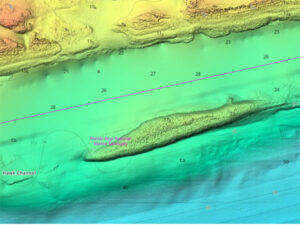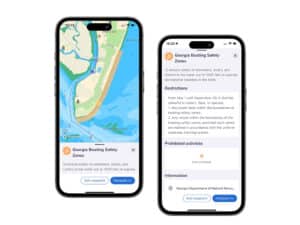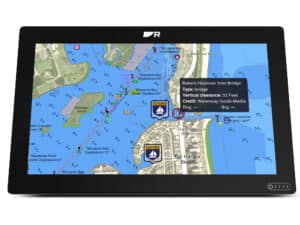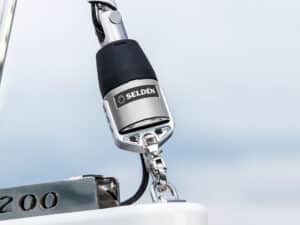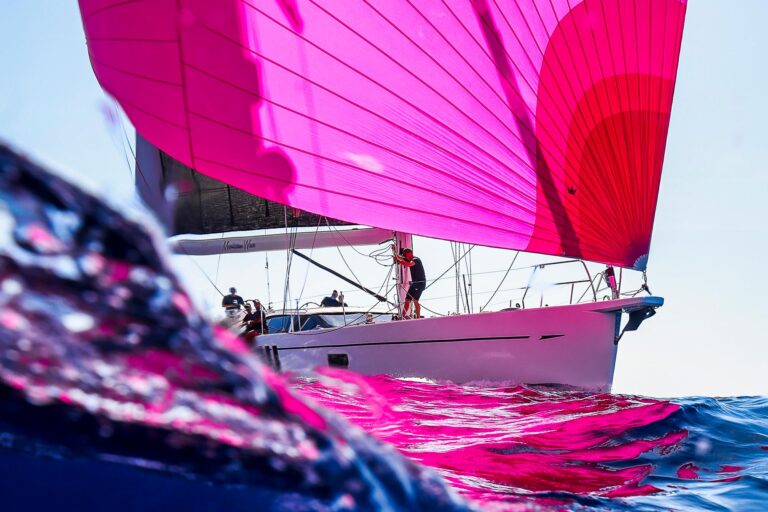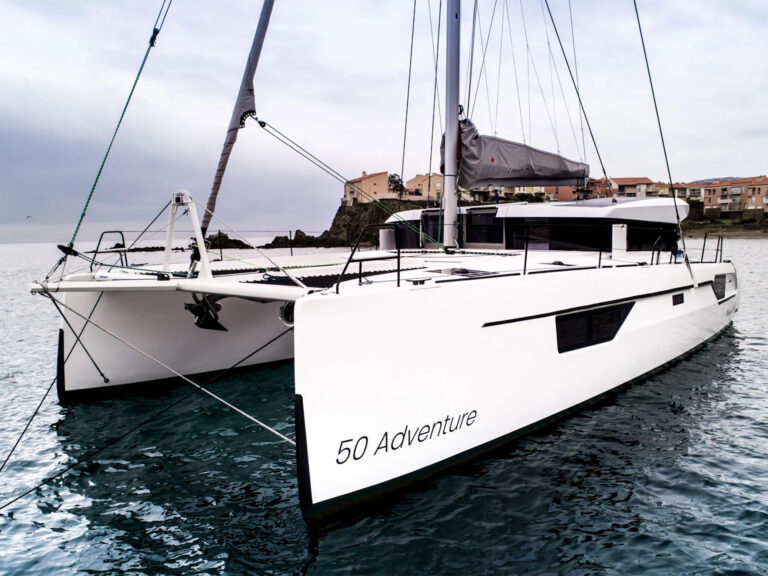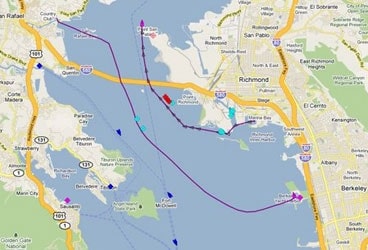
ais panbo 368
Click here, and see how blithely an anonymous Sailing Anarchy poster spread A.I.S. misinformation, reinforcing a myth that threatens to curtail adoption of Class B transponders. After first establishing himself as a sailor who uses an A.I.S. receiver, he writes knowingly (but ignorantly) about specific A.I.S. requirements around the world. And then comes the doozy: “My recollection is that A.I.S. Class A transceivers fitted to commercial vessels have a big, red IGNORE CLASS B Transceivers button to declutter their displays and concentrate on avoiding vessels that will do more than smudge their paint in a collision”. That’s unadulterated BS on all counts — the big, red button DOES NOT EXIST, the watchstanders who don’t care about small vessels are rare, and this blowhard has probably never seen a ship’s bridge to “recollect” — but the myth continues to spread…
Yesterday I came across an even worse instance, because the source was a industry tech support person! Cruiser Glenn Tuttle recently moved up from an A.I.S. receiver to a transponder, and was disappointed when several cruise ships he called around Panama couldn’t seem to see his vessel target a couple of miles away. (I don’t know what happened, but wonder if in fact they saw his dynamic target data but not the static data with his name, size, etc. — a known issue with older Class A transponders.) At any rate, Glenn researched the problem, as he reported on the Cruisers Network Online (which he happens to moderate):
I called Electronics Unlimited in Ft Lauderdale, Florida, where I purchased the unit and antenna. They just referred me to the tech support at Simrad. I finally was able to speak to a Simrad technician who told me “It is normal for Class A units not to be able to communicate with Class B units.” However, he continued to say “my Class B unit should be able to be seen by all Class B units”.
That misinformation makes me want to scream! Class A and Class B A.I.S. are carefully designed to work together; they are an integrated System. The Class B transponders I’ve tried have been visible to almost every ship I asked (though sometimes not the static data). Yet Glenn understandably goes on to say, “Had I known this, I would have just replaced my old passive unit with another passive receive only unit and saved a bundle, or maybe bit the bullet and bought a Class A unit.”
My hope is that Glenn will soon have some positive Class B experiences, like being called by name while crossing a ship channel on a snotty night. My entry on that incident — which included the theory that this ships-ignoring-Class-B fear has become a “meme” — drew a lively response. I’d like to add a few points:
* First of all, let’s start describing this issue as “ignoring” Class B, because “filtering” is a vaguer term and hence confusing. For instance, a ship captain says he regularly filters Class B — just meaning he chooses not to show Class B target name text on his plotter — but a listener assumes that he’s ignoring Class B…and the myth spreads further.
* In fact, I now understand that Coastal Explorer’s option to not “Show Class B” — once called out here — does not mean they are ignored. Class B targets pop up again if CPA/TCPA alarm thresholds are crossed. And I believe that Fugawi removed the “Ignore Class B” option from its software completely. In that same thread, incidentally, a knowledgeable commenter claimed that new ship radars and ECDIS were mandated to offer the ability to ignore Class B, but it turned out that the rules being formulated — explained here — are quite the opposite, allowing targets of various sorts to be filtered but demanding that dangerous ones be shown.
* When you think about it, can you imagine that the IMO would allow anyone to ignore its carefully designed anti-collision system? Hell, no. As the good Kennebec Captain pointed out in yet another Panbo discussion on this subject, Rule 5 of the International Rules of the Road states that “Every vessel shall at all times maintain a proper lookout by sight and hearing as well as by all available means appropriate in the prevailing circumstances and conditions so as to make a full appraisal of the situation and of the risk of collision” and those means certainly include A.I.S.
* To make the point stronger, can you imagine a Captain before a judge and jury trying to explain that he set his equipment to ignore Class B vessels, one of which he inadvertently ran over, because they cluttered his screen?
I think the truth here is pretty obvious. The big question is why does the myth grow that ships can and do ignore Class B transponders. Let’s discuss, and hopefully give Glenn Tuttle some confidence that he did the right thing by installing a Class B.
Click here for more Panbo posts.

